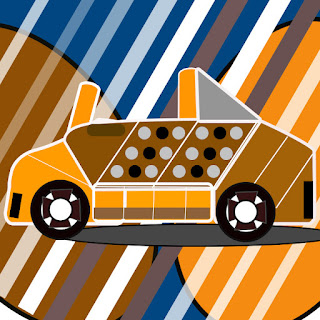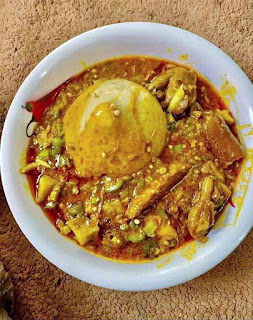Lists of Ewe names and their meanings
In the Ghanaian community and bringing it down to the Ewes, names are specifically given for different reasons. The main reason why names among this tribe are never taken for granted is that the names normally have a direct impact on the bearers. Names are given for a reason since they reflect or have an influence on the people to whom they are given. All names have meanings they represent and Ghanaian names and specifically Ewe names are not an exception. You will be enlightened on some of these Ewe names and their various meanings.
In fact, this article gives you an idea of what some Ewe names mean.
 |
| Names are like organic components of the people per the people's beliefs. |
We believe that individuals become the name they are given and for this reason, names are chosen carefully before being given to individuals. Some of the names are just given to show the day of the week a person is born whereas some show the circumstances around a person's birth.
Below are some names common among the Ewe which hold important meanings and I will be sharing with you their respective meanings and a little background information about them. You've got to learn about the names of this wonderful tribe in Ghana because it has amazing cultural beliefs and lifestyles.
- ASIWÒME - It means that in your hands. What is in whose hands? All things are in the hands of God.
- ANYO: It shall be well.
- AGBEKO: Only life
- AGBENYEGA: Life is precious or life is great.
- ABLɔDE: Freedom
- ASEYE - Praise
- AKPE - The name that means thanks.
- AWUSHIE - When a female is born with a fleshy-like cloth, this is the name given to her aside from any other names she might be given.
- AGBENYA - Means the word of life. A name like this given to mostly males is an indication of the authority and power of words and in this case the word that carries life.
- ATSU- Given to a male who is a twin with the twin pair being a girl.
- ATSUƑI- Given to a girl twin with twin pair being a boy.
- AGBENYA: Life matters.
- AWOENAM: God will do it for me.
- AƑEKE: Root of the house.
- ASIWOME: In God's hands.
- AKORFA / AKɔFA - Consolation
- AƑEAFA: Peaceful home.
- AMETEƑE: A replacement. This name is a male given name such when an elderly male passes in a house not long after the birth of the child. It is believed by the people that in a happening like that, the new born child is a replacement to the person who passes away.
- AGBESINYALE: Life has the say.
- AMEWONɔ: Mother of people.
- ADEBLEWO: Tongue has deceived them.
- AGBENYEAME: Life is human.
- ADABASU: A single lady born among many men. When many children are given birth too are males and eventually a female is born, she is given this name.
- AHETO: This is given to a male who is born among many females.
- BUTSɔMEKPɔ: Think about tomorrow.
- BUBUNE - 'Honour to Him'. A name like a prayer always when mentioned sounds like thanksgiving unto God.
- KWADZO/ KUDZO/KɔDZO - Name given to a Monday born who is a male.
- ADZO/ ADZOWɔ/ ADZOYO - Given to a female born on Monday.
- KWABLA/ KORMLA - Given to a male born on a Tuesday.
- ABLA/ ABLEWɔ/ ABLAYO - Given to a female born on a Tuesday.
- KWAKU/ AWUKU - Given to a Wednesday born who is a male.
- AKU/ AKUWɔ - Given to a female born on Wednesday.
- YAO/ YAW/ KɔWU - This name is a name given to someone born on a Thursday. It is a male-given name.
- YAWO/ AWO - A female-given name for someone born on Thursday.
- KOFI - A male was born on Friday.
- AFI/ AFIWɔ - A female was born on Friday.
- KWAMI/ KWAME - A male was born on Saturday.
- AMI / AMA - A female was born on Saturday.
- KWASI - A male was born on Sunday.
- KWASIWɔ/ AWUSI/ ESI - A female was born on Sunday.
- DOVENE: Be a companion to him or her.
- DELAWOE: The redeemer has done it.
- EDEM - The "E" in this name actually is a pronoun that refers to God. The name means God has saved me.
- EVAME - 'It has come to pass. People sometimes go through a lot of complications and struggles before they can give birth to a child. Despite this, such a name is given to the child born who can be either male or female to thank God that even though there have been struggles, the will of God has come to pass.
- ELEMAWUSI: It is in the hands of God.
- EMEFA - A female name that means it is peaceful.
- EDUDZI: He has won.
- ESINAM - God has heard my cries.
- ESI - This also means that he(God) has heard.
- ESIANYO - Parents have different expectations concerning the child they desire to have which when comes to pass brings great joy. ESIANYO means that this is good.
- EYRAM - 'He has blessed me '.
- EWOENAM - 'He has done it for me.
- ESIAWONAM: This is the one I have been given
- EKLENAM: He has shined for me.
- ELORM - He loves me or I am loved by God.
- ELOLO - He is great.
- ELEAGBE: God is alive.
- ELINAM - He(God) is there for me.
- ELI- He (God) lives.
- ESENE- He (God) hears it.
- ENYO- He (God) is good.
- ESENE: God hears. To keep the memory that God is a prayer answering God, a name like this helps to do so as it is mentioned.
- EDZESIM: God knows me.
- ESELALI: The Hearer exists.
- EKORNUNYE: God has sanctified me.
- ENALA: The giver.
- EDZɔNA: It happens.
- ESINU: Waiting on God's time.
- ENYONAM - This tells of the fact that He is good to me. Every human being owes God thanks because it is by His grace that we see and receive good gifts and even favor. If by His favor you have received a child, then you have no option but to give Him all the glory.
- ELIKEM - It means that God has established me. A way of honoring the supremacy of the almighty God.
- EGBENYA: Today's matter.
- GADEDE: Very expensive.
- GANYAGLO: Money issue is too much.
- GBETɔMENYO: It means human being isn't good. A name like this is given to a child in rare cases where someone offends the parents and they think this name fits best to stay careful in life.
- KALENYO: Bravery is good.
- WORLA - Refers to God as the maker.
- WORLANYO -The maker is good. Tells the fact that God as the maker is good.
- MAWUPEMɔ - God's way.
- MORDZIEFA: The path is peaceful.
- MAKAFUI - 'I will praise him.
- MAWUKO - 'Only God'. When the struggles of life seem impossible to overcome and just keep hardening, only God is the one whom we can call. Keeps people reminded of the fact that only God can save.
- MAWUENA - 'It is God that has given or enabled it '.
- MAWUNYO - God is good. 'MAWU' means God. The name can be given to both males and females. Shows that God who is believed to be the Almighty One is very good and kind.
- MAWUMENYO - 'To stay in God is good '. Where else can comfort that sees no bounds be found except in God? Nowhere.
- MAWULOLO - 'God is big '. Or God is great.
- MAWULI - 'God exists '.
- MɔKPɔKPɔ - 'Hope '
- MESIWOTSO: I have taken refuge in you.
- MALOE: I will love him.
- MALIKE: I will be established.
- MAWUWɔGE: God will do it.
- MAWUKOENYA: Only God knows.
- MAWUKO MAYɔ: It means that I will always call on God. A reminder that God is the steadfast rock to rely on.
- MAWUWɔGE: God will do it.
- DZIDUDU - 'Victory'.
- DZIDULA - 'Winner or Victor'.
- KLENAM - 'Shine for me. As children are the delight and hope of parents, such a name keeps it ringing in the mind of the child to shine and glow in glory for the parents.
- VAYRAM - 'Come and bless me. It is a prayer unto God to call for His blessings.
- SELASI - 'The listener has heard '.
- SEFAKɔ: Destiny has comforted me.
- SENANU: Destiny gives gifts.
- SUSUANYO: The mind is good.
- SELIKEM: Destiny has established me.
- SEDEM: Destiny has saved me.
- SENAM: Destiny has given me.
- SETUTSI: Destiny has opened the floodgates.
- SEDUDZI: Destiny belongs to God.
- SEFIAMɔ: Destiny has shown me the way.
- SUBOE: Worship him(God).
- SITSOFE: Refuge
- SEYRAM: Destiny has blessed me.
- SELORM: Destiny loves me.
- SEMENYO: Destiny is good within.
- SELAWOE: Destiny will do it.
- SEWɔNUKU: Destiny has done a miracle.
- KEKELI - 'Light'
- FAFA - 'Peace'
- FETULI: There is a reward or punishment.
- FAFALI - 'There is the existence of peace '.
- DELA - 'Savior'
- DELADEM - This name means that the savior has saved me.
- DELALI - 'The savior exists'.
- DESIADENYO: All is good.
- XOESE - 'Believe it '.
- XORLA - Means saviour. It specifically refers to God or Christ as the saviour. Mostly, given to males and sometimes even females since it is not gender-specific.
- XORLALI / XɔLALI- The saviour exists. Can be both male and female given. Indeed, there are times we feel there is no hope again but this particular name gives the assurance that God who is the saviour truly exists.
- XORSE - 'Faith'
- XORNAM - 'Help me or save me '.
- YAYRA - 'Blessing'.
- NUKUNU - 'Miracle'.
- NUNYA - 'Wisdom'
- NUSINYO: What is good.
- NYALALI: The Word remains or exists.
- MAWUTOR - God has responded.
- PETRO - In English it is Peter.
- ETORNAM - God has answered me.
- DZIGBɔDI - Signifies patience as an important value in the life of man.
- MAWULIKPLIM - 'God is with me '. A way of confirming or declaring the presence of God in a person's life.
- YOHANES - The Ewe name for John.
- EWOENAM - He has done it for me.
- GAMELI - This means that there is time. Name of encouragement for oneself that there is time for everything in life for which reason there is not a cause for fear of failure or current predicament.
- NUKUNU - Means miracle.
- NAYRAM - It is like a prayer or request to God that means and blesses me.
- BUBUNE: Praise him.
- DZIDEDI: Patience
- LEBENE: Take care of him or her.
- LɔLɔLI: There is love.
- LɔLɔNYO: Love is good.
- NUKUNYA: Miraculous word.
- NUNANA - It means a gift. Many who give birth to a child consider children as gifts from God because He is the giver of everything and so a name like this tries to emphasize that truly the child given birth to is from God.
- TSOENE - It means that give it to him. What is the object or receiver here? Mostly the object is God and what is being offered to him is the glory and praise that He deserves for his wonderful deeds in a person's life.
- TɔNYELI: I have my own.
- TSɔME: Tomorrow
- FIAVI: Prince
- NUNYA - Wisdom.
- NORKPLIM: Abide with me.
- GANYO: Money is good.
- DODZI: Have courage or in other words, be courageous.
- DZIEDZORM: I am or was happy.
- DZORDZI: Rejoice
- NUNANA: It means gift.
- ZANETOR: Let the darkness cease.
- SESI: In the hands of God.
Popular English names and their similar names in Ewe Language
- Godwin: Mawududzi
- Wisdom: Nunya
- John: Yohanes
- David: Dawid
- Peter: Petro
- Angel: Mawudorla
- Courage: Dzidepo
- Joseph: Yoseph
- Peace: Nutifafa
- Hope: Morkporkpor
- Patience: Dzidedi
- Lord: Apetor
- Precious: Exoasi
- Success: Dzidzedze
- Joshua: Yoshua
- James: Yakobo
- Godson: Mawuvi
- Shine: Kekle
- Shepherd: Kplorla
- Blessing: Yayra
- Emmanuel: Mawulikplimi
- Christian: Kristotor
- Saviour: Dela
- Winner: Dzidula
- Godsway: Mawupemor
- Grace: Amenuveve
- King: Fia
- Lovelace: Lorlorkorga
- Paul: Paulo
NAMING CEREMONY AMONG THE EWES
Naming ceremony is one very important rite performed among the Ewes because as stated earlier in this reading, the essence of names is very paramount in the life of every individual in the society. It is known in the local dialect as VIHEHEDEGO.
After a child is born, the naming ceremony is always scheduled the eighth day after the birth of a new born baby. This is not always the same as circumstances can make the family at times hold the ceremony two weeks after the birth of a child. Some of the instances that can cause this include: the child not feeling well, parents not really prepared among others.
At the gathering, relatives of both parents are to be present and other specially invited guests. The pattern of the ceremony at times differ but here is one witnessed or told.
The child is carried outside of the room by one family member who pretends the child was lost but found. The mother comes out and claims the child, the father is asked the name of the child and he tells everyone present. A finger is dipped in both water and alcohol one at a time and dropped on the tongue of the child. This act is a symbolic act that is to make the child identify truth and lie and tell it accordingly. As the ceremony is a joyous one, the dress code is always white and there is sharing of drinks and dancing and singing also performed.
Based on the belief of the parents whether traditionalists or Christians, there is a difference in how the ceremony is performed.
Reasons why almost all Ewe names are not gender specific
Unlike English names, there is not a clear cut between names which can be given to males and those for females. This is a question most people ask because many do not understand the reason why it should be so.
From an interrogation with one elderly woman who is an Ewe and has grown very much in the culture to understand this, the discussion yielded much which has been shared below.
The Ewes are more concerned about the meanings of the names and their respective manifestations in the lives of he individuals who bear them.
Let's take a name like 'Enyo' for a quick observational study. The name means God is good. Parents can give this name to a child whether a male or a female for some of these reason.
i) The child was an answer to their prayer.
ii)A form of appreciation to God for the things he has done for the family.
iii) As a prayer into the child's life that he or she will be a good individual or all things will go well with him or her.
Considering these few reasons for instance, it will actually be a hard thing to say such a name should be given to only a male or a female because they are very applicable to both genders. To place for emphasis on this, the parents have much interest in the value and impact they want a name to render to their children and so wishes to identify them characteristically with such names.
Do Ewes take English names?
Why not? Some parents do add English names to the already given names of their wards but it is more of a choice and not by compulsion. Some children too as they grow and maybe see a need to adopt an English name, they do because there isn't any rule against that at all.
A very notable or basic characteristic of every culture or tribe is the names that they are identified with because it literally shows where a person is coming from or belongs to. For an Ewe child not to bear any Ewe name at all will be an identity issue and a reason why the elderly would make sure as the natives procreate whether within the region or outside the region, they name the wards to reflect where they belong.










Demawu
ReplyDeleteedudzi is not part of the ewe nmes
DeleteAmazing 🤩😍
ReplyDeleteWow
ReplyDeleteedudzi is not part of the ewe names why
ReplyDeleteThanks for prompting me, I have added it now.
DeleteWhat does Kaleno mean?
ReplyDeleteThe word is 'kalenyo' and it means bravery is good.
DeletePls what about Edinam, Yao/Yaku and Enam
DeleteAmagashie or Amegashie
DeleteAmegashie is a title given to a women who engages in sorcery or seeks inquires of lesser gods for people.
DeletePls what the meaning of Ahwefa
ReplyDeleteWhat about Dziedzorm?
ReplyDeleteDziedzorm means I am or was happy.
Deletehttps://express.phlenu.com/affiliate-redirection/TVRBNQ%3D%3D
DeleteEwuveh
ReplyDeleteThis is first time hearing a name like this.
DeleteWhat is the meaning of KUMAHOR?
ReplyDeleteI don't know the meaning of this name though.
DeleteWhat is the meaning of the ewe name Seafia
ReplyDeleteAmazing
DeleteI think it means God will reveal. SE refers to God and FIA means to show or disclose.
ReplyDeletePls the meaning of segbeji is what?
ReplyDeleteIt means according to the will of God. SE mostly refers to God or the Supreme and in this case it means according to his will or voice.
DeletePlease Family, what is the meaning of Manifest in Ghana Anlo Ewe
ReplyDeleteManifest: This means EVAME. Mostly the word 'evame' which is Anlo Ewe is translated 'It has manifested'.
DeleteWhat does the name Adabasu mean and what is the male equivalent name
ReplyDeleteADABASU: A single lady born among many men. When many children are given birth too are males and eventually a female is born, she is given this name.
DeleteAHETO: This is given to a male who is born among many females.
Please what is the meaning of the ewe name jinam
ReplyDeleteI haven't heard of Jinam before but I know of 'Edinam or Dinam' which means that called has heard or helped me.
DeleteEwe is hard
ReplyDeleteYeah, but when you make your mind to understand, you will
DeleteI didn’t see names like
ReplyDeleteWorlanyo
Worlasi
Akpene
Boletor
Aheto
Mokpokpor
Mawutor
Ewonam
Dzifa
DeleteDzeidzom
Check the list well, only 'Boletor' I think isn't part of the list.
DeleteNuworzamedo
ReplyDeleteMeaning of Gbadegbe.
ReplyDeleteGbadegbe means 'someday'.
DeletePlease what is the meaning of Agbemenu
ReplyDelete"Agbemenu" means A thing in life.
DeleteWhy is it that some people translate SE as destiny
ReplyDeleteIs there another meaning for Selorm apart from the meaning you put there?
ReplyDeletePlease what of Sesi
ReplyDeleteI can't see Sedofia
ReplyDeletePlease, what is the English name of “Dzoyoe ti”?
ReplyDeleteWhat is meaning of Ahiatrogah
ReplyDeleteWhat about Enam?
ReplyDeletePlease I want Ewe name for my REDEEMER lives
ReplyDeleteMeaning of degbor
ReplyDeleteMeaning of degbor
ReplyDeleteDelamazior means I will lean on the savior
ReplyDeletegreat page!
ReplyDelete